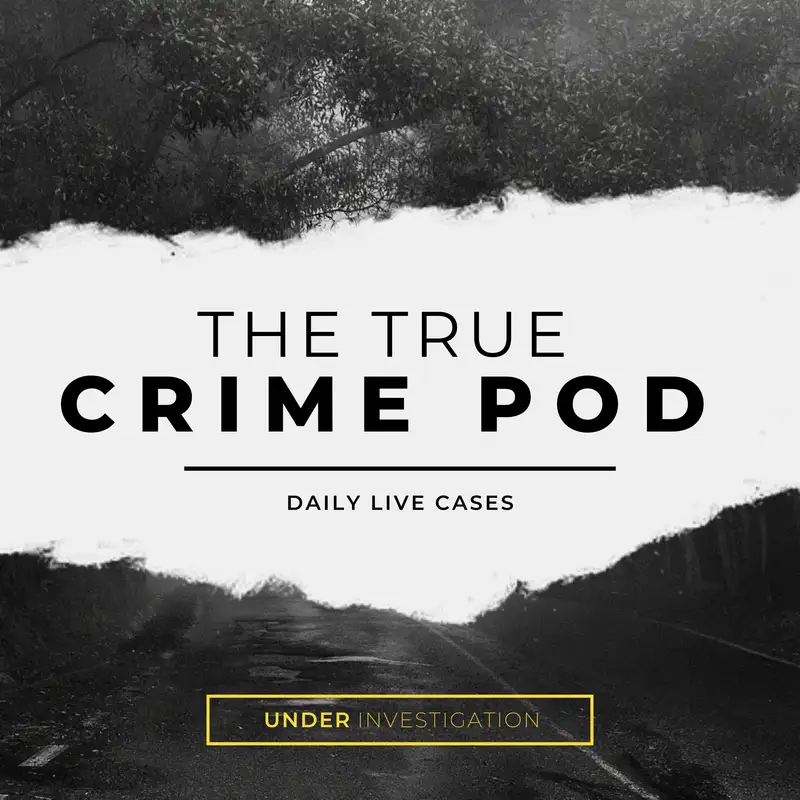
🚨 Beyond the Backhand: A Pickleball Brawl Unmasks a Killer's Legacy
Have you ever heard the smack of a pickleball on a warm afternoon, bouncing across the court like it holds secrets of its own? What if I told you that on one seemingly ordinary day, a game of pickleball turned into an unexpected physical confrontation, all involving a name that has haunted headlines for over two decades?
Welcome to The True Crime Pod. I'm Ian, your host, guiding you through the twists and turns of today's gripping saga. Before we dive in, please note that this episode contains discussions of violence that may not be suitable for all listeners.
Picture a sprawling prison yard under the California sun. It has been twenty years since Scott Peterson's infamous trial, where he stood accused of the unforgivable: the murder of his pregnant wife Laci and their unborn son. It was a case that captivated the nation, leaving a trail of questions and unresolved emotions. Today, Peterson is not making headlines for his past crimes, but for something as trivial as a game of pickleball, which quickly turned into anything but mundane.
The day seemed routine in the San Quentin State Prison. The clanking of gates, the distant buzz of overhead lights, the shuffle of feet across gravel as inmates took their turns on the court. Among them was Scott Peterson, known to many in that compound not just as an inmate, but as the man who couldn't escape his own infamy. Yet in that moment, he was just another face focused on the game.
Then came the clash, as sudden as a lightning strike. An inmate, set off by the heat of the competition and, perhaps, the presence of who stood opposite him, retaliated against Peterson's aggressive move for the ball. The corrections officers raced to break up the skirmish, their commands lost in the scuffle. It left Peterson, notorious yet now vulnerable, injured but not hospitalized. It wasn't the brutality of the assault that shocked, but rather the fragility involuntarily exposed in someone whose name once echoed power and horror.
Scott Peterson's presence in prison extends beyond the walls. His past lurks like a shadow, a reflection reminding all of his wife and child, never to breathe again. But why now? Questions arise about what truly lies beneath a game turned dangerous. Is it unresolved resentment from a crime that many argue should have ended with the perpetrator never to be heard from again?
Dr. Debbie Joffe-Ellis, a leading psychologist with a perspective on inmate behavior, might suggest that tension in such environments is heightened by unresolved narratives and the inevitable clash of personal stories and paths these inmates walk every day.
The sudden turn in today's story reveals another layer both chilling and intriguing. Why did Peterson's sentence, initially set for death, shift to life imprisonment? A recent decision by the California Supreme Court found that the trial surrounding those heinous acts had its own flaws—potential jurors dismissed for their stance on the death penalty.
Join me as we delve deeper into the murky waters of justice, where evidence is reexamined and legal imprints shift the fates. Jennifer Shen, a forensic pathologist, shares insights on how such reevaluations of justice impact victims' families, reopening wounds that struggle to heal.
Ultimately, the scuffle, now faded into the usual humdrum of penitentiary life, serves as a fresh reminder. Even locked away, the past echoes. Scott Peterson stands as a complex figure within our legal narrative—convicted, yet still a source of intrigue and ire.
As we close today's episode, we understand that the case remains as multifaceted as any human heart. It leaves us questioning, not just the structures of our penal system, but the nature of justice itself.
Remember, if today's discussion leaves you seeking support, we're here to point you towards resources. Your safety is paramount. For more about our episodes, subscribe to The True Crime Pod on all platforms, and visit thetruecrimepod.com for more information.
Until next time, stay safe, stay curious, and keep questioning.